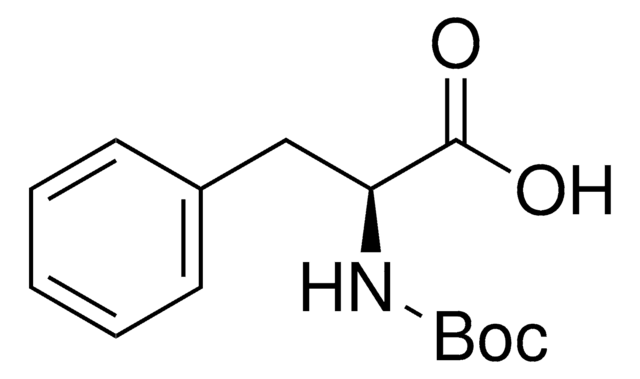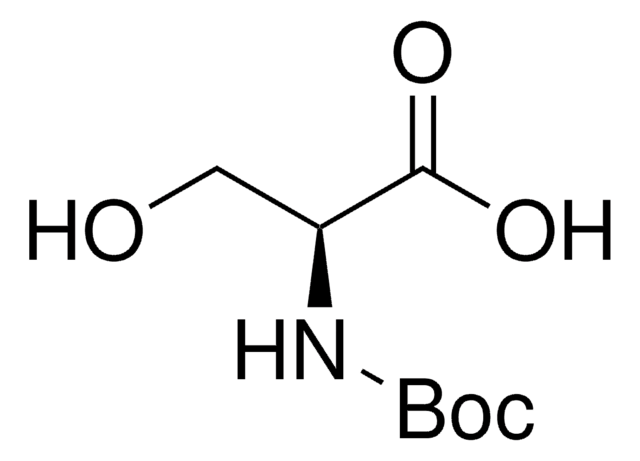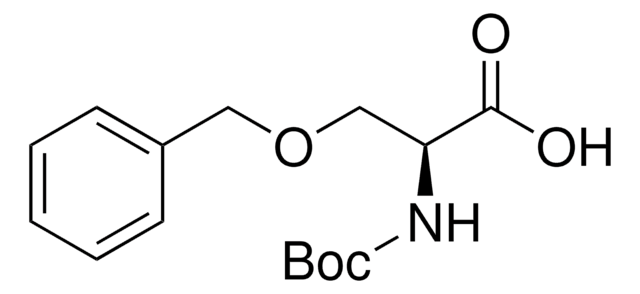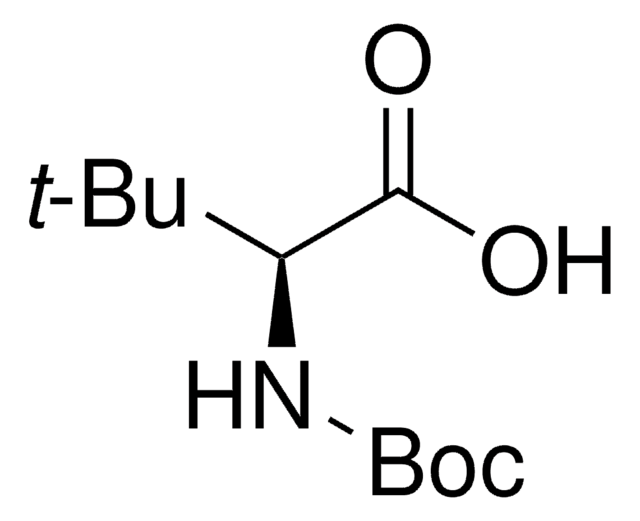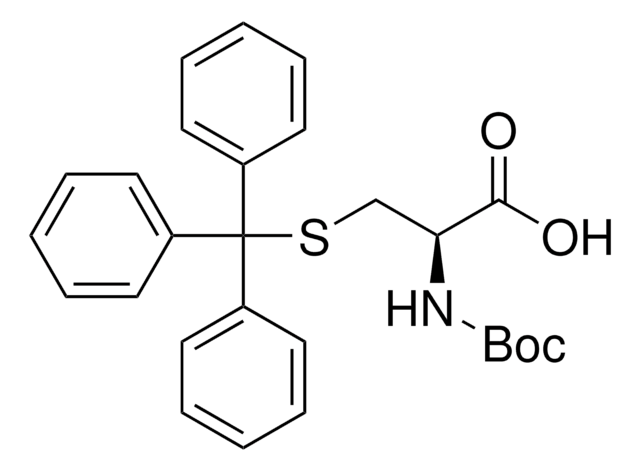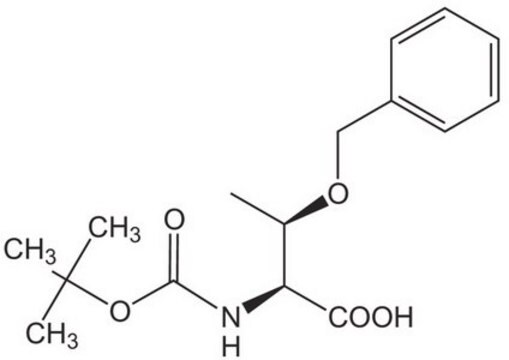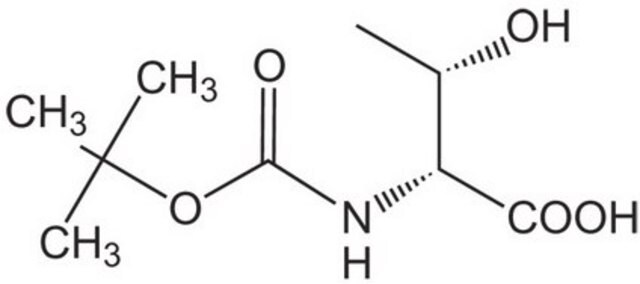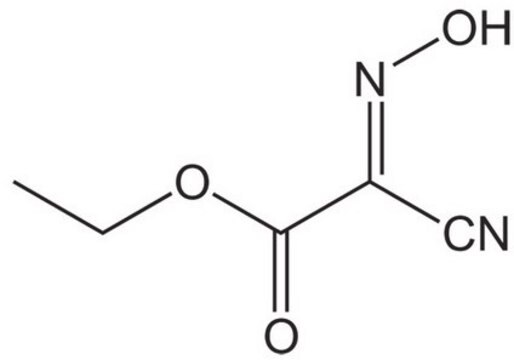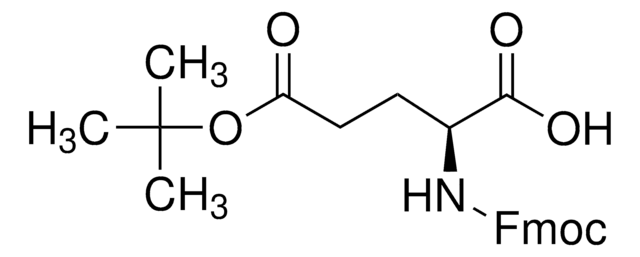806501
Boc-Thr(t-Bu)-OH
Synonym(s):
(S)-3-tert-Butoxy-2-tert-butoxycarbonylamino-butyric acid, Boc-O-tert-butyl-L-threonine
About This Item
Recommended Products
assay
95%
Quality Level
form
powder
mp
98.9 °C
application(s)
peptide synthesis
storage temp.
2-8°C
SMILES string
C[C@@H](OC(C)(C)C)[C@H](NC(=O)OC(C)(C)C)C(O)=O
InChI
1S/C13H25NO5/c1-8(18-12(2,3)4)9(10(15)16)14-11(17)19-13(5,6)7/h8-9H,1-7H3,(H,14,17)(H,15,16)/t8-,9+/m1/s1
InChI key
LKRXXARJBFBMCE-BDAKNGLRSA-N
Looking for similar products? Visit Product Comparison Guide
General description
Storage Class
11 - Combustible Solids
wgk_germany
WGK 3
flash_point_f
Not applicable
flash_point_c
Not applicable
Choose from one of the most recent versions:
Certificates of Analysis (COA)
Sorry, we don't have COAs for this product available online at this time.
If you need assistance, please contact Customer Support.
Already Own This Product?
Find documentation for the products that you have recently purchased in the Document Library.
Related Content
The Yu program centers around the discovery of catalytic carbon–carbon and carbon–heteroatom bond forming reactions based on C–H activation. Target transformations are selected to enable 1) the use of simple and abundant starting materials such as aliphatic acids, amines and alcohols, and 2) disconnections that drastically shorten the synthesis of a drug molecule or a major class of biologically active compounds.
Our team of scientists has experience in all areas of research including Life Science, Material Science, Chemical Synthesis, Chromatography, Analytical and many others.
Contact Technical Service